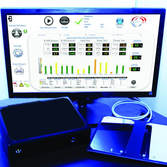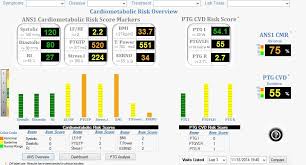Why Regular Health Screenings Are Vital for Wellness
- Admin
- Sep 2, 2025
- 3 min read
Regular health screenings play a crucial role in maintaining overall wellness. They help detect potential health issues early, often before symptoms appear. Early detection can lead to more effective treatment and better health outcomes. This article explores why health screenings are essential, the types of screenings available, and how they contribute to a healthier life.
The Importance of Health Screenings for Preventive Care
Health screenings are preventive measures designed to identify diseases or conditions at an early stage. Many serious illnesses, such as diabetes, high blood pressure, and certain cancers, can develop silently without obvious symptoms. Regular screenings allow healthcare providers to catch these conditions early, improving the chances of successful treatment.
For example, a routine blood pressure check can reveal hypertension, which if left untreated, increases the risk of heart disease and stroke. Similarly, cholesterol tests can identify high levels that may lead to cardiovascular problems. By addressing these issues early, individuals can make lifestyle changes or start medications to prevent complications.
In addition to physical health, screenings can also assess mental health conditions like depression and anxiety. Early intervention in mental health can significantly improve quality of life and reduce the risk of more severe problems.

How Health Screenings Help Detect Diseases Early
Early detection through health screenings such as Dr. Paul’s RM3A or Max Pulse can save lives. Many diseases are more manageable and treatable when caught in their initial stages. For instance, in addition early cancer screenings such as mammograms and colonoscopies can identify abnormal growths before they become invasive.
Screenings also help track changes in health over time. Regular check-ups provide a baseline for comparison, making it easier to spot unusual trends or symptoms. This ongoing monitoring is especially important for people with a family history of certain diseases or those with risk factors like smoking or obesity.
Moreover, health screenings encourage individuals to take an active role in their health. Knowing your health status motivates healthier choices, such as improved diet, increased physical activity, and quitting harmful habits.

What are the three types of screening?
Health screenings generally fall into three categories:
Routine Screenings - These are standard tests recommended for all adults at certain ages or intervals. Examples include blood pressure measurement, cholesterol checks, and blood glucose tests.
Targeted Screenings - These focus on individuals with specific risk factors or family history. For example, women with a family history of breast cancer may undergo more frequent mammograms.
Diagnostic Screenings - These are performed when symptoms or initial screening results suggest a possible health issue. The RM3A and Max Pulse are designed to establish a baseline of a 8 risk assessment diagnostic to early detect chronic diseases.
Understanding these types helps individuals and healthcare providers choose the most appropriate screenings based on personal health needs.
RM3A Diagnostic Testing
Practical Tips for Scheduling and Preparing for Screenings
To get the most out of health screenings, it is important to schedule them regularly and prepare properly. Here are some practical tips:
Consult your healthcare provider about which screenings are recommended for your age, gender, and health history.
Keep a health diary to track symptoms, medications, and family health history.
Follow pre-screening instructions, such as fasting before blood tests or avoiding certain medications.
Bring a list of questions to your appointment to discuss any concerns or results.
Maintain a consistent schedule for screenings, even if you feel healthy.
By staying organized and informed, you can ensure that screenings provide accurate and useful information.
The Role of Essential Health Screening in Long-Term Wellness
Incorporating essential health screening into your routine is a proactive step toward long-term wellness. These screenings not only detect diseases early but also help monitor ongoing health conditions. They provide valuable data that can guide personalized healthcare plans.
For example, regular diabetes screenings can help manage blood sugar levels and prevent complications like nerve damage or kidney disease. Similarly, bone density tests can identify osteoporosis risk, allowing for early intervention to maintain bone health.
Ultimately, essential health screening empowers individuals to take control of their health journey. It supports informed decision-making and fosters a partnership between patients and healthcare providers.
Taking Charge of Your Health Through Screenings
Regular health screenings are a cornerstone of preventive healthcare. They offer a window into your current health status and help prevent future problems. By understanding the importance of screenings, knowing the types available, and following practical tips, you can make informed choices that enhance your well-being.
Remember, health screenings are not just for when you feel unwell. They are a vital part of staying healthy and living a longer, more vibrant life. Make screenings a priority and encourage those around you to do the same.
Your health is your most valuable asset - protect it with regular screenings and proactive care.
Dr. Paul
Be Well
“If You Are Breathing You Got A Shot”!!











Comments